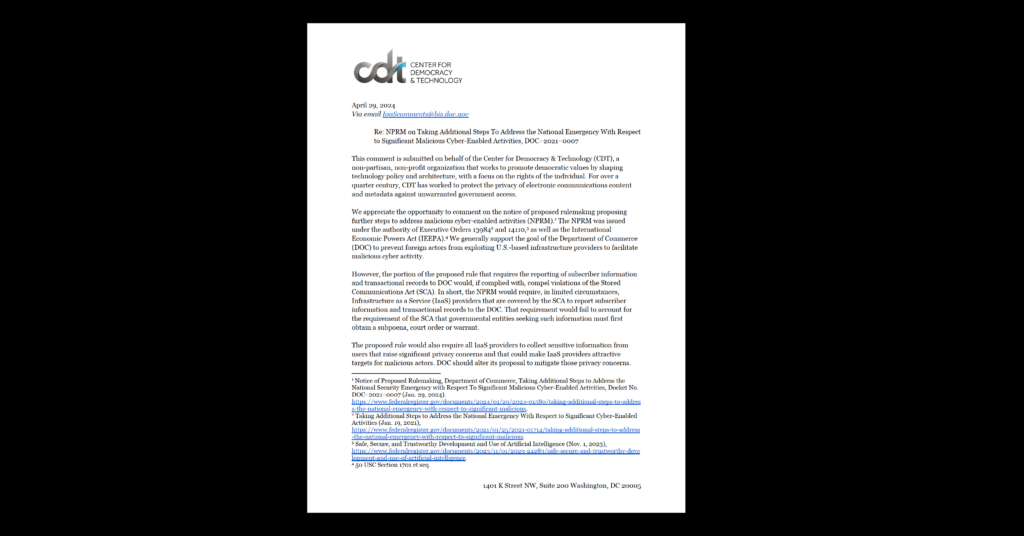Cybersecurity & Standards, Government Surveillance
CDT Submits Comments to the UN on the Right to Privacy in the Digital Age
CDT responded this week to a United Nations consultation regarding the right to privacy in the digital age. CDT’s submission focused on the importance of increased transparency in surveillance laws and practices, the impact of bulk collection of communications data on the right to privacy, and obligations of states to respect the privacy rights of all people, regardless of citizenship or location. Submissions will inform a report being prepared by the United Nations Office of the High Commissioner for Human Rights at the request of the UN General Assembly.
CDT’s report to the Office of the High Commissioner emphasizes that the right to privacy is, without question, implicated by government communications surveillance. In addition, we argue that surveillance practices can restrict free expression and access to information, so it is necessary to consider rights to freedom of expression, freedom of association, and related rights. The human rights impacts of state surveillance must also be considered both within the state boundaries and beyond them.
Technological innovation in storage and analytical capabilities, and the globalization of Internet services, has enabled a new paradigm of government surveillance that relies heavily on bulk collection of communications data. National laws have failed to keep pace with this technical reality. Bulk collection of communications data is contrary to the right to privacy addressed in Article 17 of the International Covenant of Civil and Political Rights. National laws and practices must be reviewed in this context.
Laws and regulations that govern surveillance lack transparency and the interpretation of these laws is often done in secret. CDT believes that transparency is an important first step to fostering government surveillance laws, programs, and practices that respect human rights. Accordingly, governments must adopt legislation, regulation, and practices that foster openness. Transparency is a necessary prerequisite for evaluating whether a state complies with its obligations under international human rights agreements.
CDT emphasized in its report that existing human rights treaties are adequate, but are in need of new interpretation. The submission recommends steps that the UN may take to further this analysis. CDT applauds the Office of the High Commissioner and the General Assembly for addressing this timely and challenging issue.


